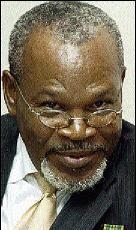
Castro
The year 1959 was a monumental one, as it heralded the formation of the most popular radio and television programme of its era, Teenage Dance Party (TADP).
With that famous theme, Bear Man Shuffle, one would hear the mellow voice of Aggrey Brown from Negril to Morant Point calling all Jamaican teenagers to the show. So inspirational was TADP that from the moment it hit the airwaves it became an immediate success.
The programme was on radio from Mondays to Fridays and televised on Friday evenings. However, on Saturdays, the group would hit the road. They would travel to a different parish each week to ensure that everyone who wished would have the opportunity to experience the sheer energy, vitality and greatness of the group.
TADP was the brainchild of Sonny Bradshaw. Bradshaw had a vision, and that was to create a programme on which talented young people would show their prowess in dancing and, in so doing, promote the music of this country.
Bradshaw had a dedicated group of people who, through their continuous efforts and tremendous talent, ensured that TADP was solidly placed on the map of radio broadcasting in Jamaica. These persons were Winston Blake, Godfrey Blair, Alphanso Castro, Syl Castro, Lennie Lawrence, Pat Reynolds (our first 'queen' who was called Pat Number One), Pat Coke (who was called Pat Number Two), Verona Johnson, Ceceile Wilson, Hartley Cousins, Louis Burke and Peter Vassall. Also involved were Trevor Weir, Gerald Bennett, Winston Sirjue, Joyce Morris, Pat Williams, Roy Cousins, Symona Symes, Sandy McGeshie, Earl Knight and Sunshine Plunket.
The first venue for TADP was studio 'B' at the Jamaica Broadcasting Commission (JBC). From there, it moved to the Rainbow Club, formerly Skateland in Half-Way Tree, then to the Glass Bucket Club, now the Bank of Nova Scotia building on Half-Way Tree Road. It then moved on to Johnson's Drive Inn on Maxfield Avenue.
During the teething years of Jamaican music, especially ska and rocksteady, it was the JBC and TADP which provided the exposure and nurtured the music to propel it into a force to be reckoned with today. No other radio station or group came close to rivalling the JBC and TADP. When all others rejected the music, these two forces embraced and facilitated it.
The music of this era was characterised by its high moral quality. Through this music, the laws of decency were upheld. Music which encouraged violence, promiscuity, indiscipline and the degradation or exploitation of women were strongly rejected.
Exposure
TADP was the vehicle through which the Jamaican music received its greatest exposure. The young people on the programme would dance to the music and, in so doing, the television audience would become more familiar with the music of the day. The innovativeness of TADP dancers helped to market Jamaican music as viewers, inspired by the creativity of its members, would be glued to their television sets every Friday to ensure that they would not miss a performance by the Castro brothers, Louis Burke or Lennie Lawrence. The music of this era was integrally linked to the dance steps. The dance created a visual impact - it gave body to the music and, therefore, people would associate particular songs with particular body moves.
TADP provided an outlet where young people could express themselves and be innovative. It opened a channel through which young people could develop the art of dancing and music appreciation and creation. Out of Bradshaw's brilliant idea evolved a number of dance groups of the highest calibre. So brilliant were the members of TADP that one of its members, Alphanso Castro, outdanced the famous Chubby Checker in a performance at Carib Theatre. The local newspaper, THE STAR, carried a headline which screamed 'Castro out-twists Chubby'.
TADP also provided valuable exposure as in 1962 Alphanso Castro was selected to represent Jamaica at the World Fair in the USA, along with Jimmy Cliff, Prince Buster, Eric Monty Morris and Byron Lee and the Dragonaires. They sold ska to the world.
Finally, it must be recognised that the success of Jamaican music today is as a result of what was done in the '60s, and due in part to JBC and TADP. They encouraged, facilitated and provided the outlet for musical expression and, eventually, worldwide acceptance.